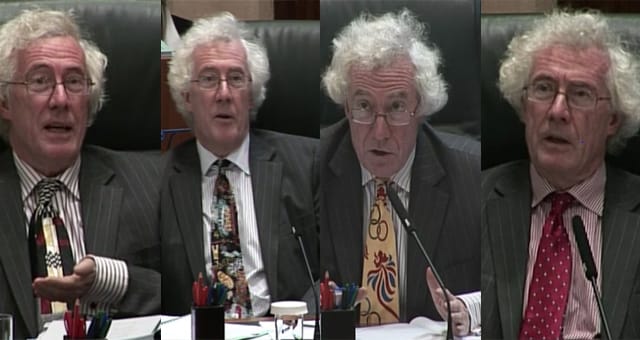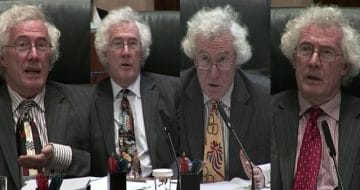Maverick Supreme Court judge says state funding is essential for crime but ‘discretionary’ for civil work — and bar needs to accept the public think they’re ‘rich toffs’, however unfair that may be

The Supreme Court judge famous for having “a brain the size of the planet” has told the bar that it needs to change the way it looks at legal aid in an era of squeezed public sector expenditure.
Speaking at the Bar Conference on Saturday, Lord Sumption labelled spending on criminal legal aid as “fundamental” as he backed the government’s decision — announced moments before he took to the stage — to spend an additional £23 million on barristers’ trial fees in serious criminal cases. But he then proceeded to label civil legal aid as “discretionary”, telling the audience that however “desirable” it may be it had to justifiably compete with other calls on public funds, in areas such as health and social security.
Sumption, who famously wore a Team GB tie on day three of the 2016 Brexit hearing, continued:
“I know this is not a popular message — but the bar’s response to these challenges has not always been wise.”
He then gave his view on exactly how barristers have been getting it wrong on legal aid.
First Sumption said that the bar had often collectively overstated its case in arguing against public funding cuts, failing to recognise that “we can’t return to open handed approach of 1970s”. Previously in his speech Sumption had charted the sharp increase in legal aid in the 1970s, as it rose from supplying 10% of the bar’s earnings to 30% in just a decade. This was a “golden age” that is unlikely to repeat itself any time soon, he said, predicting a shrinkage in barrister numbers over the years ahead — as the effect of the government’s post-financial crisis slashing of the legal aid budget by £350 million works through the system.
The 69-year-old, who will retire next month having reached the statutory retirement age for the judiciary, went on to slam the bar’s recent campaigning methods, which he said would only work if the profession enjoyed instinctive support from the public.
“Barristers will never enjoy the kind of support nurses or teachers enjoy, that means they can’t use the same campaigning methods. Public demonstrations with banner in hand and wig on head look absolutely ridiculous and are completely counter productive,” he said.
Instead, Sumption argued that barristers need to accept that most people believe that “there is no smoke without fire” and that barristers are “rich toffs”. While he described this view as a “travesty” he emphasised that it is a “deeply embedded prejudice” that is very hard to dislodge.
As such, barristers need to focus on “the only real weapons” open to them — refusing to take on instructions for inadequate pay and working on government ministers, who “however resistant are at least likely to have a better understanding of the problem than most of the wider public”.
Earlier on in a wide-ranging speech peppered with some laugh out loud quips that initially got the audience on side, Sumption had reflected on his career as a commercial barrister — painting an amusing picture of his early days in chambers as part of a profession that was much less professional than it is today.
